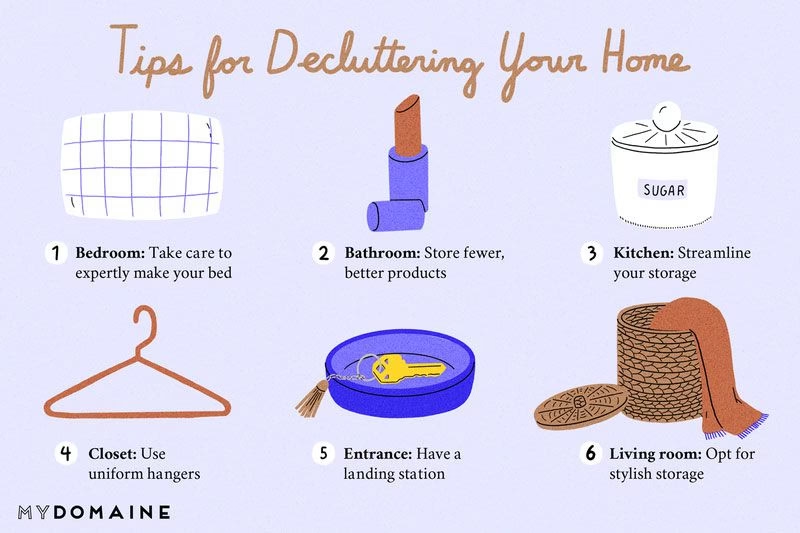The kitchen is undoubtedly the heart of many Kenyan homes – a vibrant space where meals are lovingly prepared, chai is shared, and family stories unfold. However, with the constant activity, the accumulation of cooking gadgets, a variety of ingredients, and the everyday ebb and flow of household items, kitchens can quickly become a hotbed of clutter. Overstuffed drawers, overflowing countertops, and disorganised cabinets not only make cooking a chore but can also create stress and reduce efficiency.
At Retail Place, we understand that a functional and serene kitchen is key to a harmonious home. This comprehensive guide provides practical and culturally relevant kitchen decluttering tips specifically for Kenyan homes, helping you reclaim your culinary space, streamline your routine, and create an environment that truly supports your vibrant family life.
Why Decluttering Your Kitchen Matters in Kenya
- Reduces Stress & Boosts Calm: A cluttered space often leads to a cluttered mind. Clearing out unnecessary items brings a sense of peace and order, making your kitchen a more enjoyable place to be.
- Increases Efficiency: When everything has a designated home, you spend less time searching for items and more time cooking and enjoying your meals. Imagine finding that mkate knife or mchuzi spoon instantly!
- Maximizes Space: Many Kenyan homes, particularly in urban areas like Nairobi, feature compact kitchens. Decluttering helps you make the most of every available inch, creating more usable counter and storage space.
- Saves Money & Reduces Waste: A clear view of your pantry and fridge contents prevents duplicate purchases and helps you use ingredients before they expire, aligning with the Kenyan value of resourcefulness.
- Improves Hygiene: Less clutter means fewer hidden spots for dirt, dust, and pests. A decluttered kitchen is inherently easier to clean and maintain.
- Enhances Safety: Fewer items on countertops and proper storage of sharp objects reduce the risk of accidents.
The Kitchen Decluttering Challenge: A Step-by-Step Guide for Kenyan Households
Decluttering a kitchen can feel overwhelming, but breaking it down into manageable steps makes it achievable.
1. The Mindset Shift: “Do I Use It? Do I Need It? Do I Love It?”
Before you begin, adopt a minimalist mindset for your kitchen. Every item should earn its place.
- Be Ruthless (but Practical): This isn’t about throwing everything away, but about identifying items that are truly useful, necessary, or bring you joy.
- Consider Kenyan Realities: Do you need that specialised chapati maker if you rarely use it? Are those extra sufurias truly necessary, or do a few versatile ones suffice?
Read: Mastering the Compact Living Kitchen in Kenya.
2. The Grand Purge: Tackle Categories, Not Cabinets
Instead of clearing one cabinet at a time, pull all items of a specific category from all their locations.
- Start Small (and Celebratory!): Begin with a less intimidating category.
- Expired Food Items: Check expiry dates in your pantry, fridge, and freezer. Anything expired, moldy, or unidentifiable goes directly into the trash or compost. This is a quick win!
- Duplicate Utensils: How many mwikos, spatulas, or bottle openers do you truly need? Keep 2-3 of the most functional ones and donate or discard the rest.
- Plastic Containers & Lids: The infamous “lidless container” problem! Match all containers with their lids. Discard unmatched lids and containers without a partner. Keep only a practical set that you regularly use.
- The “Four-Box” Method (or Bags!): As you go through each item, immediately place it into one of these categories:
- Keep: Items you use regularly and love.
- Donate/Give Away: Items in good condition that you no longer use but someone else could benefit from (e.g., extra cutlery, seldom-used appliances, old sufurias). Think local charities, children’s homes, or even friends/family.
- Trash/Recycle: Broken items, chipped crockery, expired food, or things that cannot be repurposed.
- Relocate: Items that belong in another room (e.g., children’s toys, mail, cleaning supplies not used in the kitchen).
3. Countertops: Clear the Stage for Cooking
Your countertops are prime real estate for food preparation.
- Only Essentials: Keep only items you use daily on the counter (e.g., kettle, coffee maker, a frequently used spice rack).
- Appliance Audit: Large appliances like blenders, toasters, and air fryers are common culprits. If you use them daily, they can stay. If weekly, perhaps a nearby cabinet. If monthly or less, store them away in a pantry, a less-used cupboard, or even a different room if space is truly limited.
- The “Landing Strip” Principle: Designate a small, contained area for keys, wallet, phone, and mail – ideally away from the main cooking zones. A small tray or bowl works wonders.
Read: Smart Organization Tips from a Kenyan Kitchen.
4. Cabinets & Drawers: Create Homes for Everything
Once you’ve decluttered, it’s time to organize the “keepers.”
- Group Like with Like: All cooking oils together, all baking supplies together, all plates together. This makes finding and putting away items intuitive.
- Utilize Vertical Space: Many Kenyan kitchens have deep cabinets. Use shelf risers to create extra levels for plates, bowls, or mugs. Stackable bins are excellent for storing dry goods like snacks or spices.
- Drawer Dividers: Essential for cutlery, cooking utensils, and small gadgets. They prevent items from shifting and tangling. You can find simple plastic ones or more sophisticated bamboo options.
- Pot & Pan Organizers: Say goodbye to noisy, precarious stacks! Vertical racks or pull-out dividers keep your pots, pans, and lids separate and easily accessible.
- Door-Mounted Storage: The inside of cabinet doors is often overlooked space. Add hooks for oven mitts, dish towels, or even a slim rack for cutting boards or rolls of foil/cling film.
- Pantry Power: If you have a pantry, implement clear, airtight containers for dry goods (flours, rice, beans, spices) to keep them fresh, visible, and pest-free. Labels are your best friend here!
Read: The Best Kitchen Cabinet Organizers in Kenya.
5. Maintain the Calm: Daily Habits for a Clutter-Free Kitchen
Decluttering is an event; maintenance is a lifestyle.
- The Daily Reset (10-15 Minutes): Before going to bed, spend a few minutes wiping counters, loading the dishwasher (or washing up), and putting away any stray items. This prevents clutter from accumulating overnight.
- “One In, One Out”: When you buy a new kitchen gadget or a set of plates, consider if an old, similar item can be donated or discarded.
- Regular Mini-Declutters: Once a month, dedicate 15-30 minutes to one small area (e.g., the spice cabinet, the snack drawer) to prevent it from reverting to chaos.
- Involve the Family: Teach children to put away their dishes, clear their plates, and put their snacks back in designated bins. Make it a shared responsibility, as is common in many Kenyan households.
- Don’t Buy More Storage (Initially): Declutter first! You’ll often find you have enough space once the unnecessary items are gone. Only then, strategically invest in organizers if genuinely needed.
Transforming your kitchen from a source of stress to a haven of culinary creativity is entirely within reach for any Kenyan home. By embracing these kitchen decluttering tips, being intentional about what you keep, and establishing simple daily habits, you’ll not only enjoy a more organized and efficient cooking space but also foster a calmer and more harmonious environment for your entire family. Start today – even a single drawer can make a difference!










1 Comment